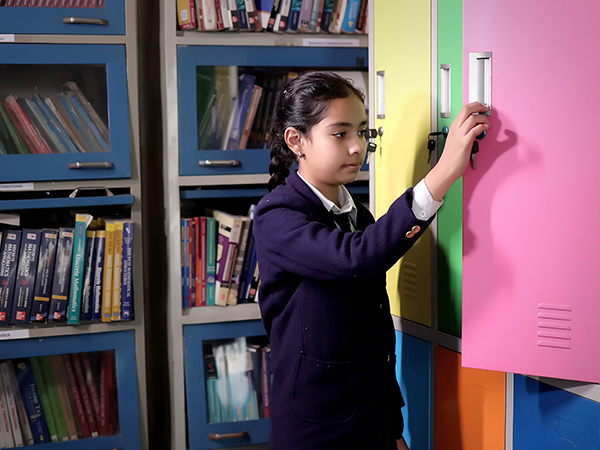
Remedial Classes
Bridging Gaps and Enhancing Potential
Education is a dynamic process, and every student learns differently. Recognizing this diversity, our school has introduced remedial classes designed to benefit not just the weaker section but all students, regardless of their academic standing. These classes aim to provide a supportive environment for personalized learning, ensuring that every learner can reach their full potential. The remedial classes are structured to address individual learning needs. For students facing challenges in specific subjects. These sessions offer targeted assistance to strengthen their foundational knowledge. Meanwhile, for those who excel, remedial classes act as a platform for advanced learning and enrichment, helping them push their boundaries.
After reviewing assessment data analysis and teacher observations remedial classes in the school are organized on the basis of backlog classes, for discussing specific modules, for gaining insight into trends, knowledge, and in-demand skills, to achieve learning outcomes, to deal with inconsistent performance, and to fill gaps in concept understanding.
Our remedial program is not just about academics. It emphasizes building confidence, developing problem-solving skills, and cultivating a growth mindset.
SPECIAL EDUCATION
Kamal Model Senior Secondary School has been running a Special Education Department for over a decade, committed to inclusive education where every student—regardless of ability or need—is welcomed, supported, and empowered to succeed.
We focus on creating a learning environment that embraces diversity and ensures equal access to education. Our trained Special Educators and Counselors work collaboratively with teachers, students, and families to support students with special needs.

Special Education Department focuses on the following:
- a) Typically includes Special Educators, Counselors.
- b) Ensures Equal Participation in activities such as sports, yoga, dance, theatre, art, and craft, with appropriate support.
- c) Inclusive Curriculum and Classroom Accommodations involves adapting teaching methods, materials, and environments to meet the diverse needs which includes differentiated instruction, accessible learning resources, sensory-friendly spaces, extended time, alternative eating, assistive technologies etc. This ensures equitable access to education for learners of varying abilities.
- d) Individualized Education Program (IEP) outlines specific learning goals, the support and services required, and the methods of assessment to track progress. Created collaboratively by educators, parents, and specialists, the IEP ensures that the student receives tailored instruction, accommodations, and resources to meet their unique needs and achieve their potential.
- e) Curriculum Modifications and Flexibility involves adjusting the content, delivery, and expectations of lessons to suit the unique needs of individual students by simplifying or enriching materials, changing the pace of instruction, or offering alternative assessment methods. This ensures that all students, regardless of their abilities or learning styles, can access and engage with the curriculum effectively while achieving their fullest potential.
- f) Examination Accommodations ensure students with diverse needs can demonstrate their knowledge and skills fairly. These may include extended time, breaks, alternative formats (e.g., oral exams, large print), or the use of assistive tools like readers, scribes, or technology. It aims to remove barriers without altering the exam's objectives, promoting equity and inclusion in assessment processes.
- g) Teacher Training and Awareness focuses on equipping educators with inclusive teaching strategies, cultural competency, special education practices, and managing diverse classrooms. Awareness programs help teachers recognize and address biases, foster empathy, and create supportive environments where all students can thrive.
- h) Sensory and Behavior management includes creating sensory-friendly environments, using tools like fidget devices or noise-canceling headphones, and implementing structured routines. It focuses on understanding triggers, teaching coping skills, and reinforcing positive behaviors to promote emotional regulation and engagement.
- i) Parental Involvement and Support by attending school events, communicating with teachers, and supporting learning at home boosts students' motivation, improves their social skills, and enhances their academic performance, creating a collaborative approach to their development.
- j) Use of Assistive Technology help students access content, communicate more effectively, participate fully in classroom activities, overcome barriers to learning and improve their academic performance.

STUDENT SUPPORT MATERIAL
People and land need healing which is all inclusive and holistic:
People and land need healing which is all inclusive and holistic:
For nurturing our students' cognitive, emotional, social and physical development, we ensure that they are not only knowledgeable but also resilient, empathetic and adaptable for facing today's challenging world. To guide students to master the art of adaptability and resilience, we provide study material that may help them to enhance their competency-based skills and to foster analytical thinking and practical expertise.





